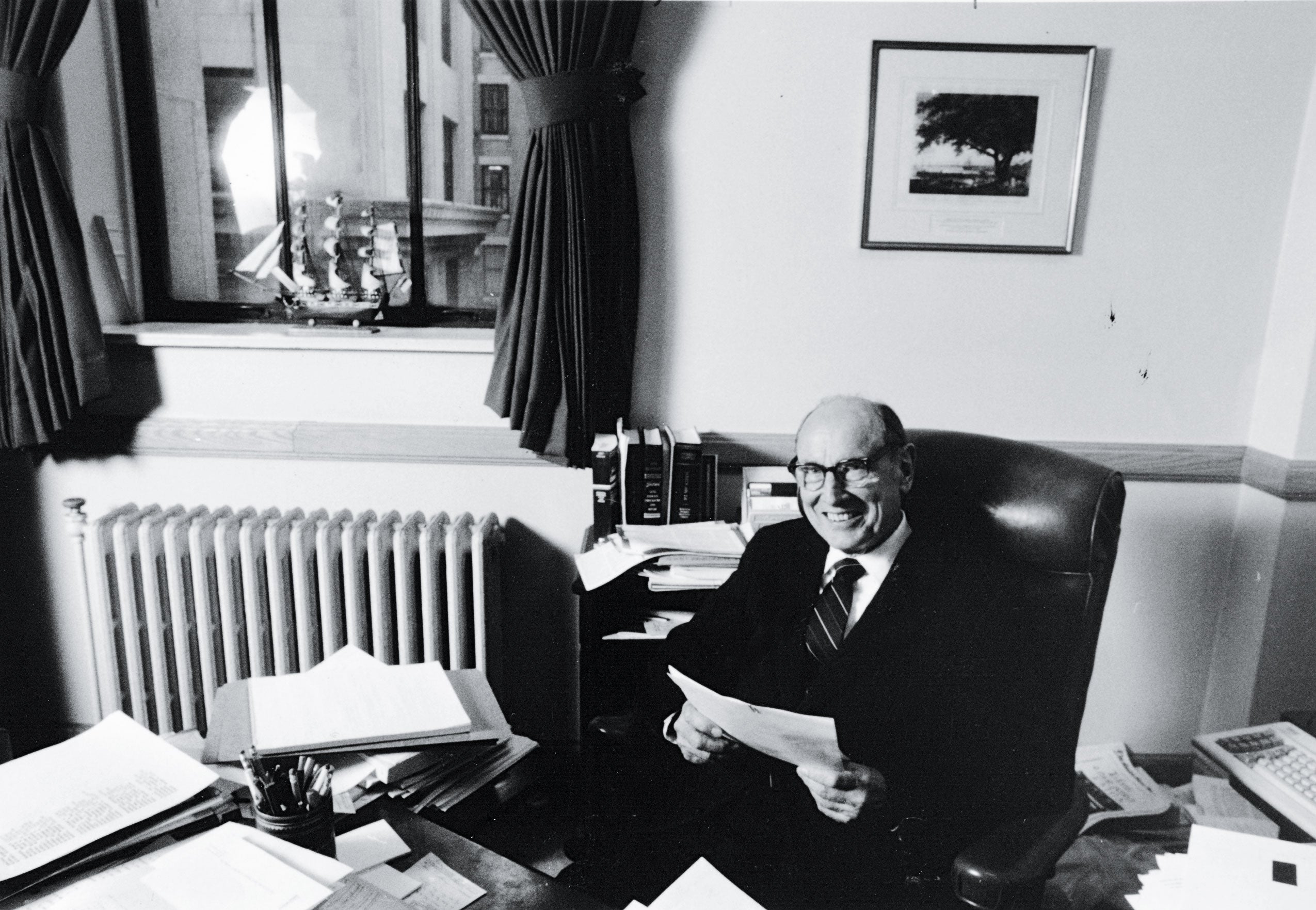Legal Pioneer and Judge
Professor Emeritus Robert E. Keeton S.J.D. ’56, a pre-eminent scholar of insurance law, torts and trial tactics who served as a U.S. District Court judge for 27 years, died July 2 at the age of 87.
Keeton was the author of several influential legal treatises, including “Tort and Accident Law.” Harvard Law School Professors Henry Steiner ’55 and Lewis Sargentich ’70 collaborated with him on two editions of this work.
Steiner recalled how much he valued Keeton as a colleague and collaborator: “It wasn’t just that I benefited from his views about the field’s history and dilemmas. More important, I deepened my understanding of its various forays into regulatory regimes and of his extraordinary contribution to that powerful development. We enjoyed the warm, generous and instructive companionship that Bob offered.”
One of Keeton’s most important contributions to insurance law was a study he co-wrote on the automobile insurance system and published in the late 1960s. It led to the passage of Massachusetts’ no-fault auto insurance law.
Keeton’s older brother, W. Page Keeton S.J.D. ’36, was also a well-known scholar of tort law who served as the dean of the University of Texas School of Law. The brothers collaborated on several projects, including the legal treatise “Prosser and Keeton on Torts,” for which Robert Keeton was a contributing editor.
In 1954, he joined the HLS faculty. Author of “Trial Tactics and Methods,” he created the school’s trial practice program. It became the Trial Advocacy Workshop and was emulated by law schools around the country.
Known among students both for his Socratic style of teaching and for his sense of humor and warmth, Keeton carried those characteristics with him when he left HLS for the federal bench in 1979, after being appointed by President Jimmy Carter.
Emily Frug Klineman ’00, who clerked for Keeton in 2001, recalled the value he placed on humility: “One of my favorite things about his chambers is that he had hanging, among recognition from the national conference of judges and the other various honors he had accumulated over the years, a little plaque from his elementary school that commemorated Robert E. Keeton for being never absent and never tardy. It said a lot about what was important to him.”
While on the bench, Keeton presided over several notable cases, including the Kenneth Conley trial. Conley, a Boston police officer, had been convicted of perjury in connection with a case involving the beating of another officer in 1995. Keeton found that the prosecutors failed to turn over exculpatory evidence, and he ordered a new trial, an outcome that was upheld on appeal in 2005 and eventually led to the conviction being vacated.
Born in Clarksville, Texas, on Dec. 16, 1919, Keeton obtained a B.B.A. and an LL.B. from the University of Texas. He practiced law in Houston until going into active duty with the Navy. Serving as a lieutenant in World War II, he earned a Purple Heart after his ship, the escort aircraft carrier USS Liscome Bay, was struck by a Japanese torpedo on Nov. 24, 1943, and he spent hours in the ocean clinging to debris.
After the war, Keeton returned to private practice in Houston and later taught at the Southern Methodist University in Dallas before joining the HLS faculty.
When he retired from the federal bench in 2006, he was the oldest member of the federal judiciary in Massachusetts. Mark L. Wolf ’71, the chief judge of the U.S. District Court in Boston, told The New York Times: “He taught many of us on the federal bench when we were students at the Harvard Law School, and he was still teaching us until the end of his judicial career.”
